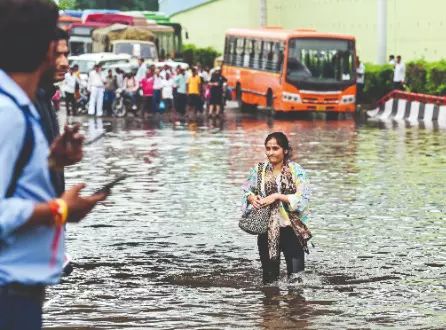
NEW DELHI, Sept. 17 -- For residents of New Rajinder Nagar, water scarcity is no longer just an inconvenience, but a way of life. Earlier this month, taps ran completely dry for three straight days, forcing families to scramble for alternatives. The colony also battles episodes of dirty water caused by pipeline blockages.
But instead of outrage, what stands out is a weary silence - years of neglect have dulled expectations, leaving residents resigned to paying tanker operators or managing with whatever trickle the pipelines deliver.
The problem, residents say, dates back to 2008, when the water supply was reduced from twice a day to once. Arvind Mehta, president of the Joint Forum Residents of New Rajinder Nagar, acknowledged that although the real goal should be round-the-clock running water, residents would settle for the earlier twice-a-day schedule, calling it a more "practical" demand.
He now fields 40 to 50 calls every morning from neighbours complaining that the already limited supply has turned erratic.
However, repeated appeals to representatives, including the engineers at Delhi Jal Board and the successive MLAs, have failed to bring relief.
Mehta argues that the root of the problem lies in the supply source - the Chandrawal and Wazirabad water treatment plants. "If there is a glitch at the plant, residents can go without water for two to three days," he said. The second issue lies with the local water boosting station, which often fails to maintain steady pressure and distribution within the colony.
Avinash Pushkarna, an executive member of the residents' forum, alleged that the so-called "government tanker mafia" exploits the crisis, charging residents exorbitant
bribes for water.
He held civic agencies responsible for failing to upgrade supply lines and capacity, despite the
colony's legal expansion.
"People seek permissions before constructing buildings and apply for legal water connections - it's not like DJB and MCD are oblivious to this growth. But there is no
discipline or coordination between them," he said.
The water crisis, Mehta stressed, stems less from resources than resolve. Despite funds being available, entrenched apathy among bureaucrats and political indifference has left citizens to
fend for themselves.
Published by HT Digital Content Services with permission from Millennium Post.
